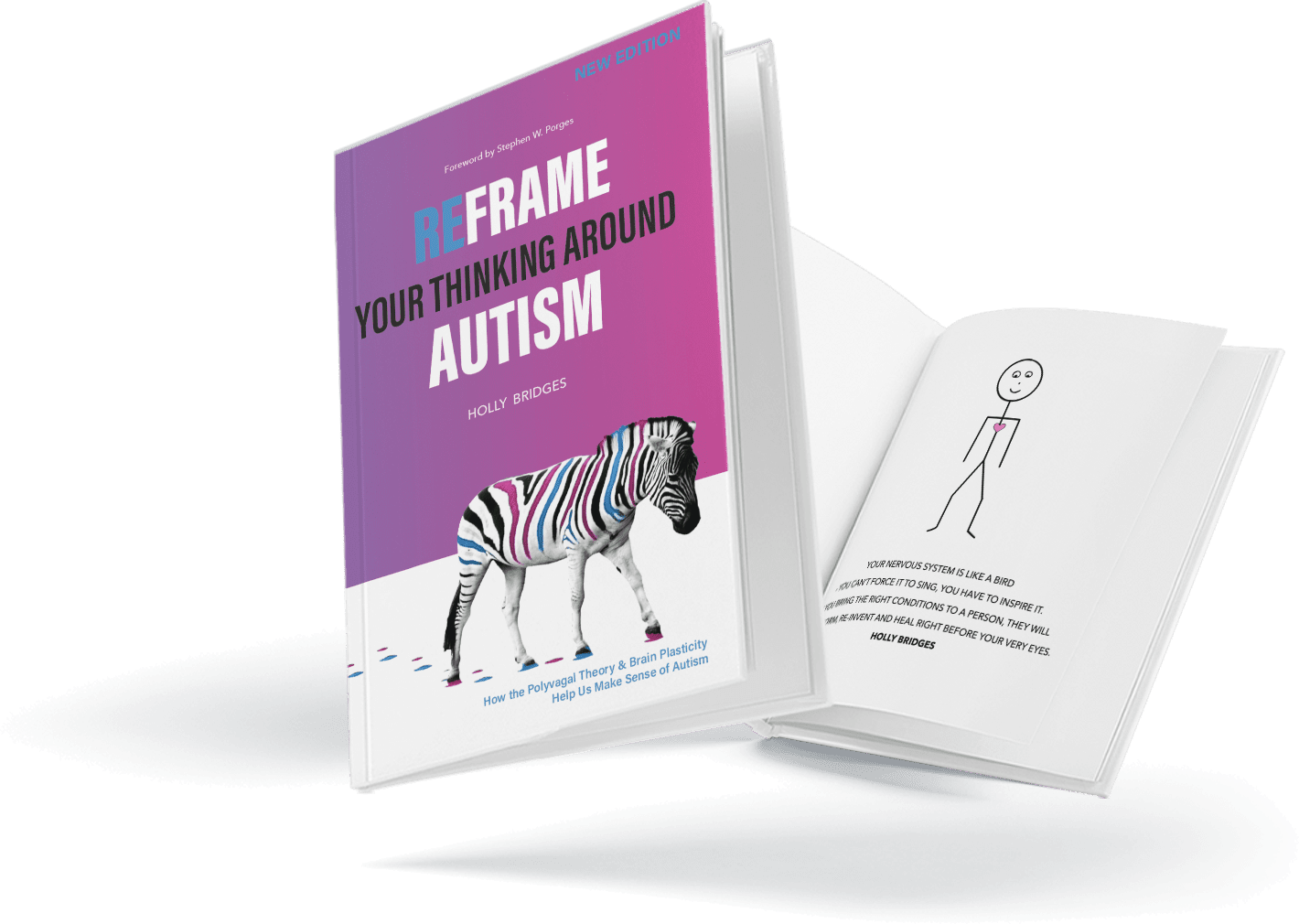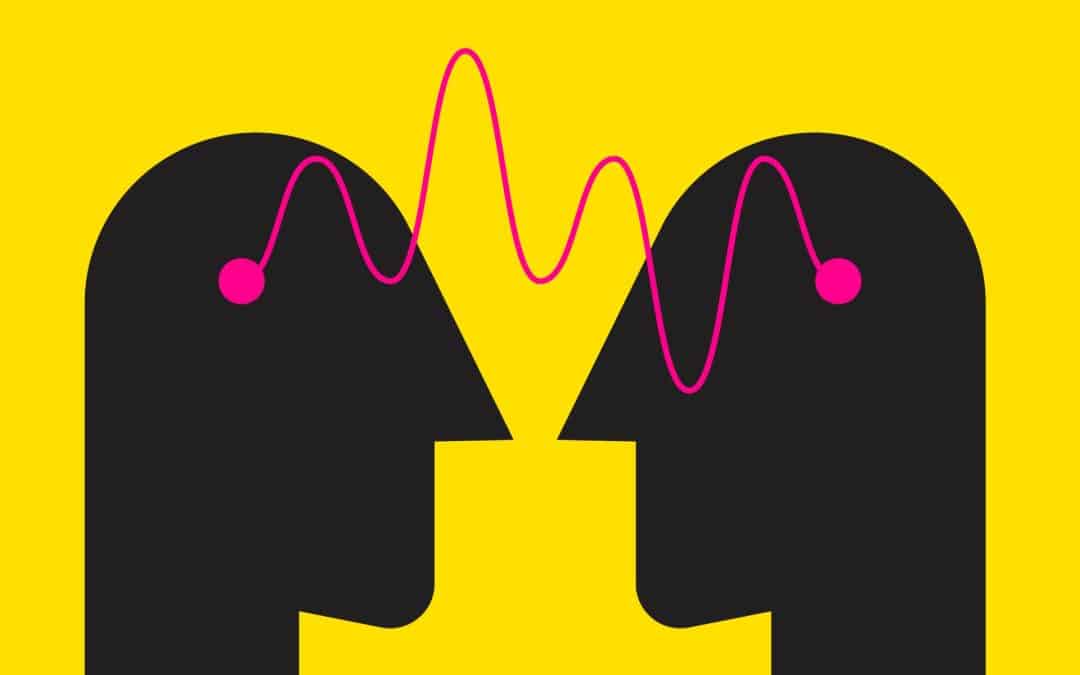Stephen Porges has written a forward to the book and has given it his blessing. The polyvagal theory has been around for over 25 years now and is a well documented science. It has had a major impact on psychotherapy theory and practice, especially approaches that take the body more into account, notably somatic experiencing, Larry Heller’s NARM model, sensorimotor psychotherapy, and the work of Bessel Van Der Kolk. The gentle movements and felt sense style of working that Anat Baniel offers fits into a well-established tradition of body psychotherapy. Thus the background science and practice of these ideas will be familiar to many psychotherapists.
Reframe Your Thinking Around Autism is a manifesto for a new way to conceptualize and work with people on the autism spectrum and I certainly believe it deserves attention. Bridges maps out the polyvagal theory in a clear and pragmatic way and with this she does therapists of all orientations a real service. The author reports a growing base of case studies that have shown good outcomes. On the other hand, her approach is novel and there are undoubtedly processes and details that could be refined. Her approach would really benefit from some rigorous and impartial studies to better establish its’ scope and limitations. Personally, I feel this would really help move it into the mainstream of treatment, establish funding for it, and build confidence in using it.
In conclusion, as a practicing psychotherapist I feel grateful to Bridges for making the polyvagal theory and the awareness movement approach more accessible and applicable to me in my work with a broad range of clients. What she emphasizes is that everyone is ‘on the spectrum’ insofar as ‘neurotypical’ is a construct. We all share similar nervous systems that can be prone to move out of balance into fight, flight and freeze states that can be chronic and debilitating across a wide spectrum. Her book will most likely help to make the polyvagal theory more accessible to the wider public and deepen our understanding of how embodied states operate, and for these reasons I feel that her book is a valuable resource.
Vincent is a Cork-based psychotherapist. He can be contacted at: vincent@vincentryan.net





